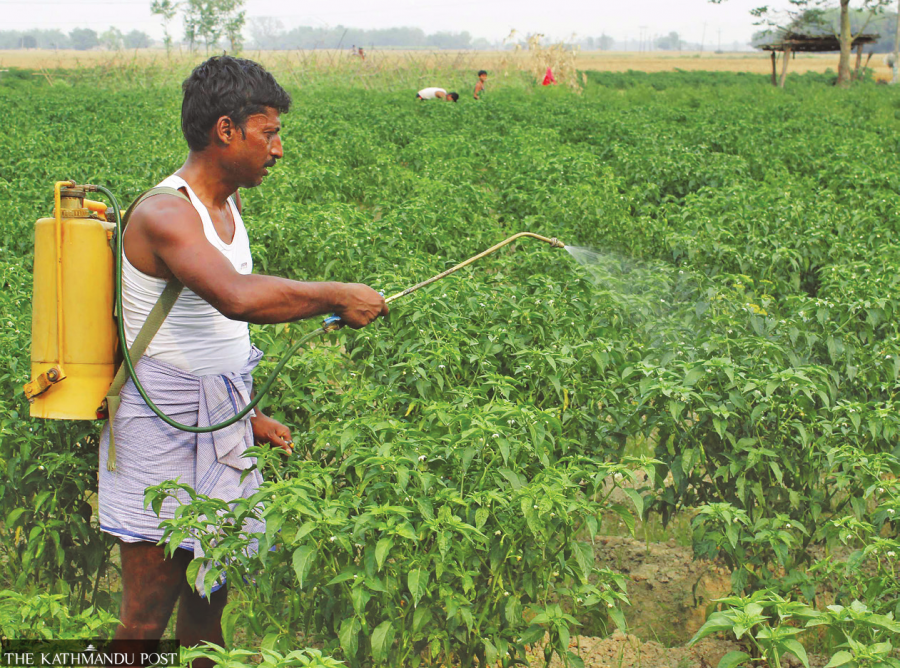Editorial
Don’t touch that
Farmers have been using harmful pesticides unaware of the dangers.
Indiscriminate use of pesticides is seen to be taking a toll on farmers in the Tarai lately. Nepal has been importing pesticides since the 1950s, and their use has risen over the years. Of the various chemicals, insecticides have been primarily used to control vector-borne diseases. Still, pesticides have recently dominated Nepali agricultural practices with varying risks and hazards to farmers and consumers alike. Ideally, pesticides by nature have to be lethal to affect the targeted pests, but their effects lately have had far-reaching consequences on non-targeted species too.
The extensive use of pesticides has once again brought forth the issue of lack of awareness among farmers and the abysmal monitoring mechanism designed to stem any abuse of chemicals. Given the lack of fertilisers and their impact on food production, farmers in Nepal have been increasingly using pesticides suggested by suppliers and retailers, commonly referred to as agrovets. But lack of a robust monitoring mechanism has allowed unregistered suppliers and retailers to operate freely, giving them a free hand in selling harmful pesticides without any fear of repercussions.
While, on the one hand, there is the issue of unscrupulous suppliers profiting at the expense of producers and consumers alike due to an inherent weakness in the control system, there is another far more serious problem affecting farmers. Lack of awareness has led to haphazard usage. Farmers seem to be utterly ignorant regarding the type and composition of the pesticides they are using, and consequently, unaware of the impact on their produce and numerous other non-targeted species. Lack of protective clothing while spraying pesticides often results in farmers being the first victims coming in direct contact with the harmful substances leading to acute and chronic health effects such as nausea, dizziness and even sometimes as serious as cancer.
Consumers, too, suffer the effects of contaminated produce. Fruits and vegetables laced with pesticides often flood the market increasing health risks among gullible buyers. Consumers are often of the view that adding fruits and vegetables to their diet aids in their effort to achieve a healthy dietary balance, but unbeknown to them, negligent practices involving pesticides are instead jeopardising people’s health. Farmers must wait for at least three to 30 days, depending on the type of pesticide used, before they can sell their produce. But this restriction relies on the integrity of the farmers, who are often seen to shun it at the first opportunity of a handsome economic reward.
The rising number of cancer cases and other illnesses cannot pinpointedly be attributed to the consumption of pesticide-laced produce, but doctors do have their doubts. The effects of pesticides aren’t just related to direct exposure like in the case of farmers or to consumption of contaminated produce. Pesticides can contaminate the soil, surface and groundwater too. And their indiscriminate usage will do harm to the soil in the long run instead of increasing productivity. There is an urgent need to strengthen awareness and monitoring of the procurement and use of pesticides before the situation truly gets out of hand.




 9.6°C Kathmandu
9.6°C Kathmandu














